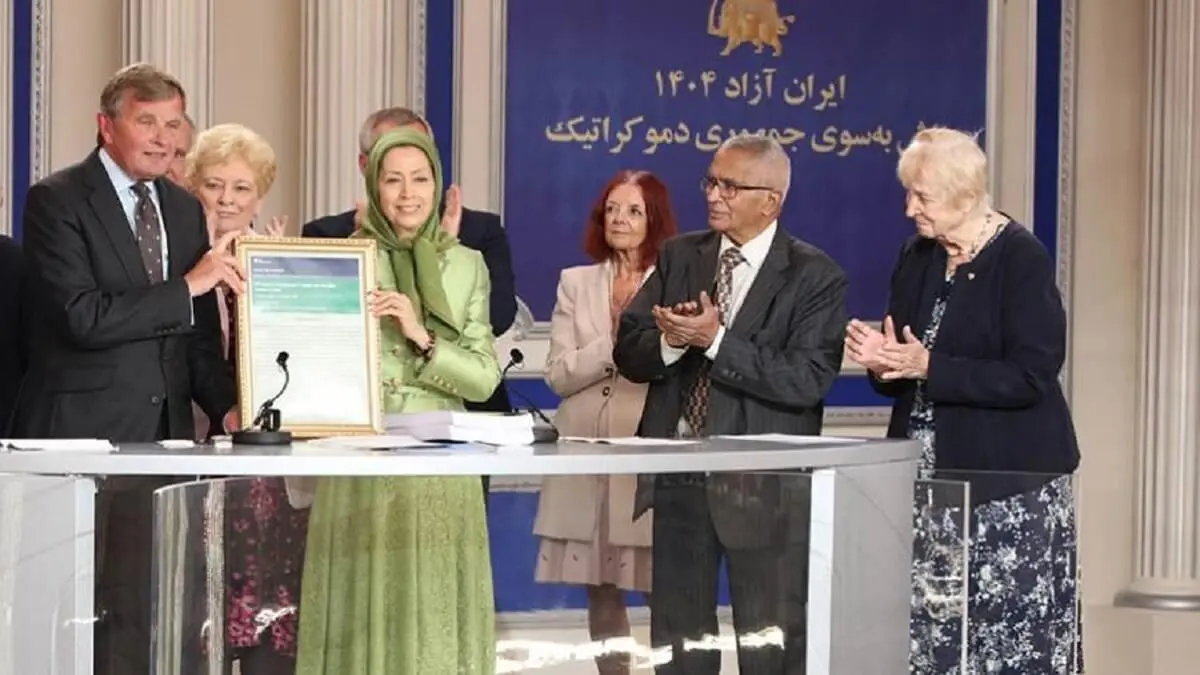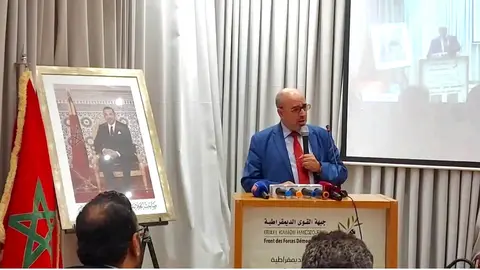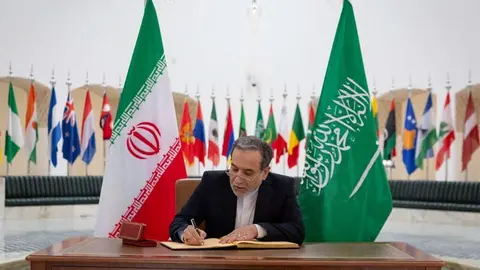Iranian and French resistance: disturbing similarities between the slanders

- 45 years of diplomacy through hostages
- The confession of a former terrorist
- The price to pay: slander to secure release
- A show trial to intimidate
- A well-oiled smear machine
- The same slander, another era
These two hostages are not only victims of the brutality of a religious dictatorship, but also of a policy of appeasement that several European governments, including France, have been pursuing for too long towards this regime. Such kidnappings can only thrive in a climate of complacency and concessions towards theocracy.
45 years of diplomacy through hostages
For more than 45 years, the mullahs in power in Iran have used hostage-taking as a diplomatic tool. Former President Hassan Rouhani himself acknowledged this: ‘We have been in permanent conflict with the international community for 45 years.’ Whenever traditional diplomacy fails, the regime resorts to kidnappings or targeted assassinations.
Following the waves of repression and massacres in the early 1980s, many opponents, particularly members of the PMOI, found refuge in the West, especially in France. Since then, hostage-taking has become an instrument of repression from a distance. The regime has constantly pressured successive French governments to extradite or silence members of this resistance. At times, some governments have given in.
The confession of a former terrorist
Anis Naccache, a Lebanese terrorist in the service of the Islamic Republic who served ten years in prison in France, recounted the mechanisms of this blackmail: ‘I was detained in France. Four French hostages had been kidnapped in Lebanon. A representative of the Quai d'Orsay came to see me. I told him: you have to give back a million dollars to Iran. Then expel Massoud Rajavi (historic leader of the Iranian Resistance) from France.’ (Ofogh Channel, Jahan Ara programme, 11 February 2017).
The price to pay: slander to secure release
The release of Louis Arnaud in June 2024 appears to have been conditional on a widespread smear campaign. A prestigious French newspaper devoted four pages to accusing the PMOI of exploiting children as soldiers. During the release of another hostage this year, another publication launched defamatory attacks against the leader of the Iranian resistance, accusing her of using the movement's funds for personal gain.
A show trial to intimidate
On 12 December 2023, a public trial against 104 PIMF members began in Tehran and is still ongoing. On 7 May, the judge stated: ‘The countries that are hosting these defendants should know that this constitutes a crime under international conventions against terrorism.’ This trial, which has now been going on for over a year, is clearly aimed at putting pressure on France to extradite political refugees who have been living on its territory for decades.
A well-oiled smear machine
The newspaper Javan, the mouthpiece of the Revolutionary Guards, claims: ‘In recent years, the Mujahideen have fuelled internal unrest through violent actions and financial support.’
Given the central role played by the PMOI in the popular uprising in Iran, the movement is the target of a continuous smear campaign: one day it is accused of recruiting child soldiers; the next, of operating as a sect.
The aim is clear: to break all international support for the Iranian resistance, including in European parliaments, especially in France.
The same slander, another era
The Iranian regime labels those fighting to liberate their country as ‘terrorists’, while glorifying its militias responsible for attacks under the label of ‘resistance’. In November 2022, Attorney General Mohammad Jafar Montazeri stated: ‘This group is terrorist, it is funded from abroad and it poses a threat to national security’ (Radio-Television of the Islamic Republic of Iran, November 2022).
But this rhetoric is nothing new. It echoes word for word that of the Vichy regime, an accomplice of the Nazi occupation: ‘The communist terrorists have struck again... They are sowing death in our streets and provoking the fury of the occupier. The blood of the innocent is on their hands.’ (Radio Vichy, summer 1943).
The real crime of the Iranian resistance — and of the PMOI that embodies it — is simply to want a free Iran.
Previously published in Dépêche.



